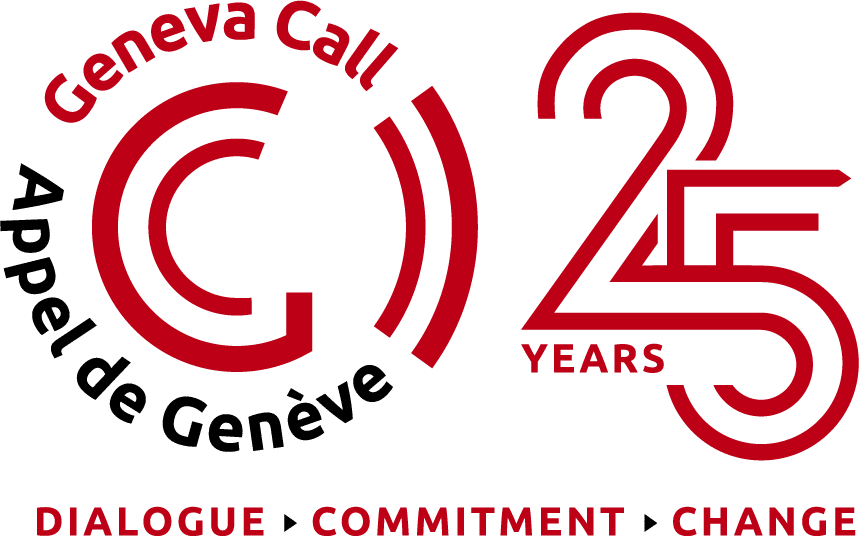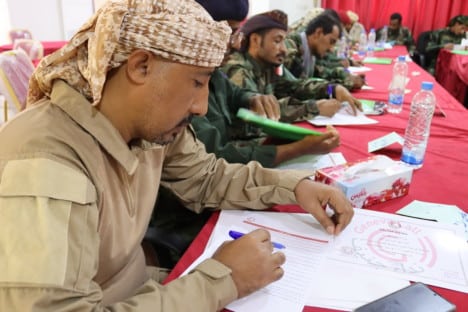Yemen
Thematic areas: Humanitarian Norms – Landmine Ban – Medical Care
The current conflict in Yemen is a mosaic of complex local, regional and international power struggles. The situation has deteriorated since 2015 when President Abdo Rabbu Mansour Hadi was forced to flee to Saudi Arabia by Ansar Allah/Houthis rebels. In response, a Saudi-led coalition was mobilized aiming to reinstate the Hadi government. The Houthi group has a strong grip on Sana’a, while the STC seized power in Aden in 2019. Since the start of the conflict, two major peace agreements were signed:
- ”Stockholm Agreement”, between theGovernment of Yemen and the Houthi group in 2018.
- Riyadh Agreement, between the Government of Yemen and the STC under the patronage of Saudi Arabia in November 2019.
Yemen continues to be the world’s worst humanitarian crisis, driven by conflict, economic collapse and the continuous breakdown of public institutions and services. The escalation of the conflict has dramatically aggravated protection risks for millions of civilians. Over 410,000 people were displaced during 2019. Despite global attention and political talks, immense suffering persists across the country.
Geneva Call’s activities in Yemen
• Deeds of Commitment: through careful and sustained dialogue with the STC, three Deeds of Commitment were signed in 2019:
– Deed of Commitment for Adherence to a Total Ban on Anti-Personnel Mines and for Cooperation in Mine Action;
– Deed of Commitment for the Protection of Children from the Effects of Armed Conflict; and
– Deed of Commitment prohibiting sexual violence in armed conflict and towards the elimination of gender discrimination.
• Enhanced engagement for humanitarian access: Due to regular contacts, sustainable and confidential dialogue with two of the main ANSAs in Yemen, Geneva Call continued playing a central role in facilitating effective humanitarian access for humanitarian organizations on the ground.
• Strengthened ANSAs’ knowledge & capacities: Geneva Call strengthened the ANSAs’ knowledge on IHL through training sessions targeting high-ranking officials within the STC. Thematic sessions focused on the protection of children and the prohibition of their recruitment, the prohibition of use of AP mines, and ERW near highly populated areas.
• Consolidated awareness: Key influential community stakeholders in different governorates representing more than 35 CSOs/CBOs, traditional/religious and political leaders, media workers and local NGOs, increased their awareness on international humanitarian norms. Despite significant challenges in the north, Geneva Call successfully implemented awareness-raising activities in Sana’a, leveraging its proximity to local organizations, working with and through them to organize activities and disseminate key messages on humanitarian norms. Geneva Call reached local NGOs and civil society organizations, contributing to enhance the respect of international humanitarian norms, via the Friends of International Humanitarian Law Network, a unique innovative initiative developed first in Lebanon.
• 2020: Geneva Call’s engagement with the leadership of the Southern Transitional Council (STC) led to securing an agreement to engage on the implementation of the Deeds previously signed. The deep level of engagement helped to ease concerns and obtain a commitment from the STC to proceed to the policy and implementation levels.
• 2020: STC agreed to exempt humanitarian organizations from the application of the curfew rules it imposed during the onset of the pandemic in Aden.
• 2020: STC leadership undertook to address reports on the targeting of migrants
• 2020: Geneva Call managed to deepen the engagement with the Houthis which allowed them to transmit IHL messages in radio programs across the Houthi-controlled areas.
• 2020: While the COVID-19 measures brought new levels of challenges, the organization continued to deliver its program for hard-to-engage forces such as the Thunderstorm Brigade in Aden, Elite Forces in Hadramout, security forces in Hadramout Valley, as well as forces in al Mahra. This is the first time Geneva Call has reached politically important governorates of Hadramout, Shabwa, Socotra, and al Mahra.
• 2020: Geneva Call became the only NGO able to interact with such a wide range of armed actors in Yemen. In Sanaa, through IHL training and Training of Trainers (TOT), Geneva Call managed to reach influential figures in the security apparatus, prosecution, and military judges. The impact of this intervention has elevated the acceptance of Geneva Call and its messages with important actors in the Houthi de facto authorities.
KEY DATA
In 2017 17 women, from 16 DIFFERENT YEMENI WOMEN’S ORGANIZATIONS, were trained on international humanitarian norms.
18 CIVIL SOCIETY ORGANIZATIONS from different governorates have been trained on international humanitarian norm.
Geneva Call is ENGAGING ACADEMIA, MEDIA, COMMUNITY, RELIGIOUS AND TRIBAL LEADERS to disseminate IHL in Yemen.
13 REPRESENTATIVES OF INGOS working in Yemen were trained on international humanitarian norms.
A FIGHTER NOT KILLER CAMPAIGN was launched in Yemen in 2017 and 2018 to reach out to the general public and members of armed actors and to raise the level of awareness of IHL. In 2018 alone, our Fighter not Killer videos were VIEWED BY OVER 3 MILLION PEOPLE AND REACHED OVER 8 MILLION PEOPLE in Yemen.
Awareness sessions on IHL organized for DIFFERENT ARMED ACTORS in Yemen.
Geneva Call is developing HUMANITARIAN ENGAGEMENT PLANS with a number of different armed actors to start providing them with IHL training.
Contact information:
Mohammed Hassan – COUNTRY DIRECTOR
mhassan@genevacall.org

